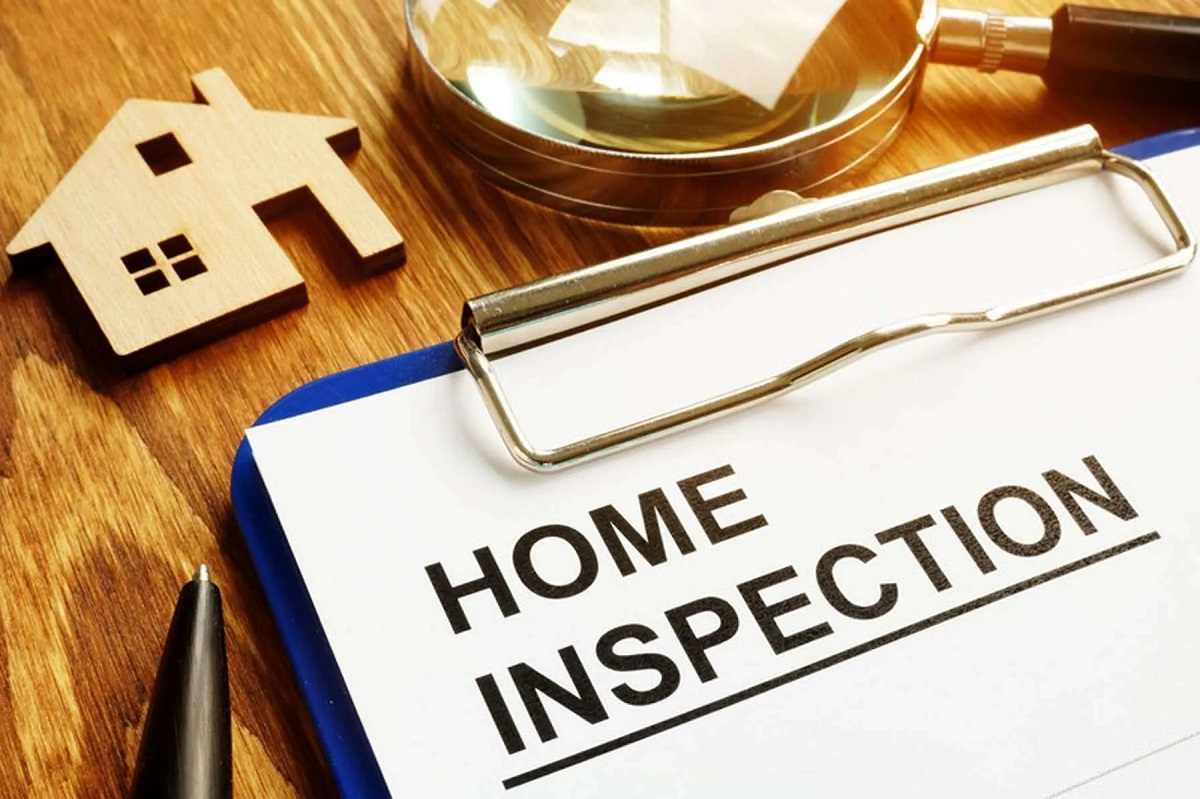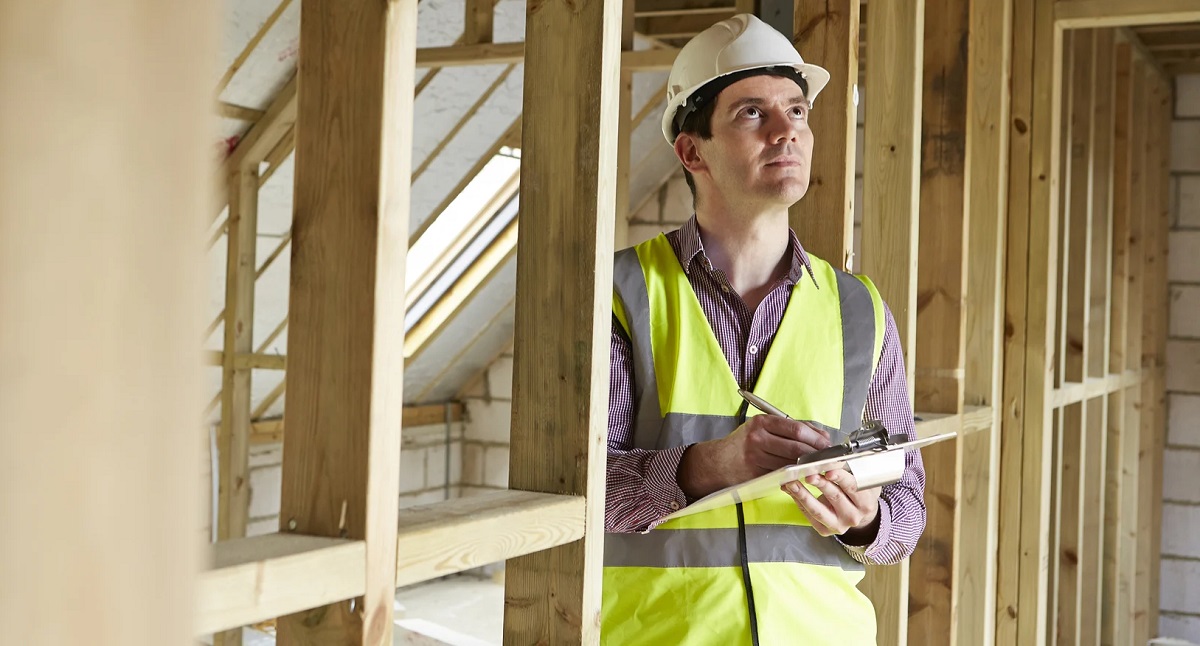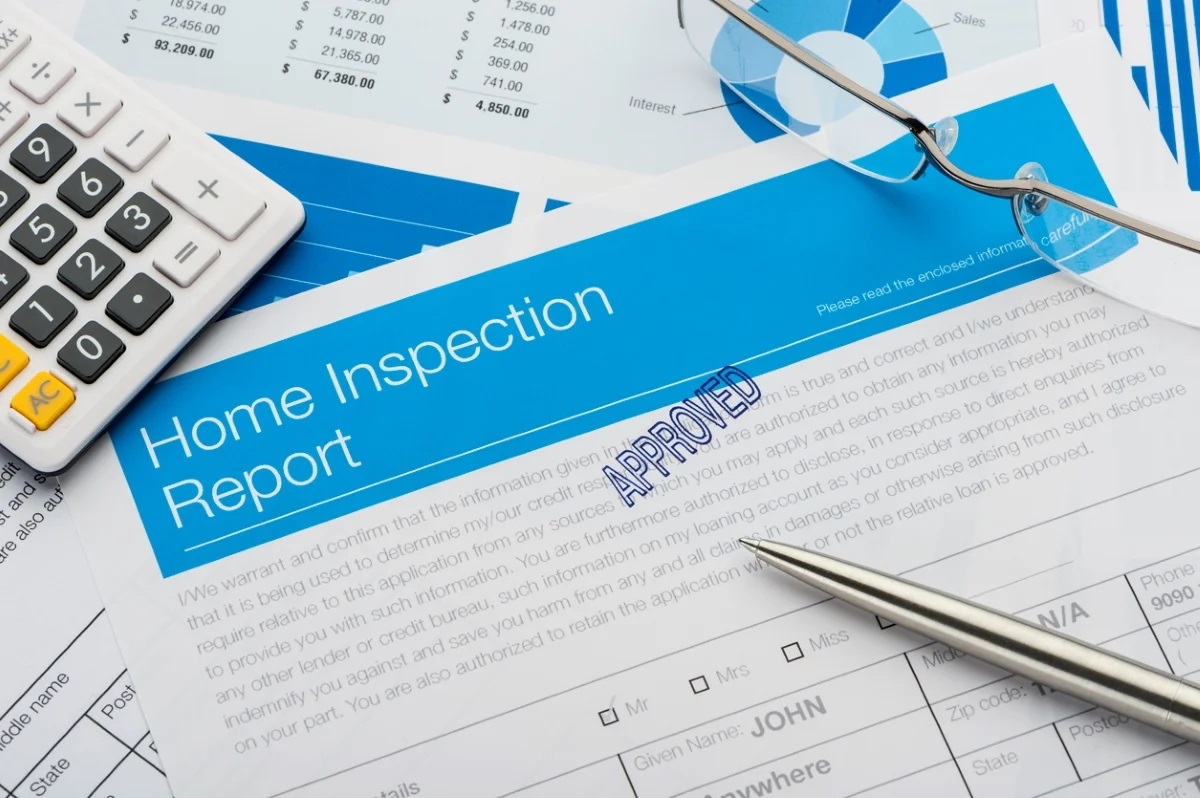Home>Home Maintenance>How Does A Home Inspection Help Buyers?


Home Maintenance
How Does A Home Inspection Help Buyers?
Modified: March 6, 2024
Home inspections are crucial for buyers to identify potential issues and ensure their investment is sound. Learn how a home inspection helps buyers with home maintenance.
(Many of the links in this article redirect to a specific reviewed product. Your purchase of these products through affiliate links helps to generate commission for Storables.com, at no extra cost. Learn more)
Introduction
Welcome to the world of home buying! As an aspiring homeowner, I’m sure you want to ensure that the property you purchase is in good condition and free from any hidden issues that could cost you time, money, and stress down the road. That’s where a home inspection comes into play.
A home inspection is a vital step in the home-buying process that brings peace of mind by thoroughly assessing the condition of a property. Whether you’re a first-time buyer or a seasoned real estate investor, understanding the role of a home inspection is crucial.
During a home inspection, a skilled and qualified inspector will visually evaluate the major components of the property, including the foundation, roof, electrical systems, plumbing, and overall structural integrity. They will provide you with a comprehensive report detailing their findings and recommendations.
Now, let’s dive into the various ways in which a home inspection helps buyers make informed decisions and navigate the home-buying process with confidence.
Key Takeaways:
- A home inspection helps buyers uncover hidden issues, estimate repair costs, and negotiate the purchase price, empowering them to make informed decisions and gain peace of mind.
- By identifying potential problems and estimating future expenses, a home inspection equips buyers to navigate the home-buying process with confidence and make well-informed decisions about their investment.
Understanding the Role of a Home Inspection
A home inspection plays a crucial role in helping buyers understand the true condition of a property they are interested in purchasing. It goes beyond what meets the eye and provides a detailed evaluation of the home’s structural integrity, safety, and functionality.
One of the primary purposes of a home inspection is to identify any potential issues or defects in the property. This includes problems with the roof, plumbing, electrical systems, HVAC, and more. By thoroughly examining these areas, an inspector can uncover hidden problems that may not be apparent during a simple walkthrough.
The inspection report will provide a comprehensive list of any issues found, along with their severity and recommendations for repairs or further evaluation. Armed with this knowledge, buyers can make informed decisions about whether to proceed with the purchase, negotiate repairs with the seller, or even walk away from the deal.
Beyond just identifying issues, a home inspection also helps buyers estimate repair and maintenance costs. The report will outline the expected lifespan of major components such as the roof, HVAC system, and appliances. This helps buyers understand the potential future expenses they may face and plan accordingly.
It’s important to remember that no home is perfect, and every property will have some degree of wear and tear. However, a thorough inspection can help distinguish between minor issues that can be easily addressed and more significant problems that may require substantial investments.
An inspection can also be useful for buyers who are planning to renovate or make improvements to the property. By understanding the existing condition of the home and its components, buyers can better prioritize their renovation projects and allocate their budget accordingly.
Overall, a home inspection is a critical step in the home-buying process, providing buyers with the knowledge and confidence to make informed decisions. It helps uncover potential issues, estimate repair costs, and consider the long-term maintenance of the property. So, before sealing the deal on your dream home, don’t forget the importance of a thorough home inspection!
Identifying Potential Issues
One of the key benefits of a home inspection is its ability to identify potential issues that may exist within a property. While some issues may be more visible to the naked eye, others require a trained professional to assess accurately.
During a home inspection, the inspector will carefully examine the various systems and components of the property. They will check for any signs of damage, decay, or malfunction that could lead to costly repairs or safety hazards.
One common area of concern is the roof. The inspector will inspect the roof for any signs of leaks, missing or damaged shingles, or inadequate ventilation. Roof repairs can be quite expensive, so identifying issues early on can save buyers from unexpected financial burdens.
The inspector will also evaluate the condition of the electrical system, checking for any outdated or faulty wiring that could pose a fire hazard. They will ensure that all outlets and light fixtures are functioning correctly and that the electrical panel is in good working condition.
Plumbing is another critical area that is thoroughly examined during a home inspection. The inspector will assess the water pressure, check for leaks or water damage, and inspect all plumbing fixtures and drains. They will also look for signs of potential plumbing issues, such as rusted pipes or a poorly functioning water heater.
The structural integrity of the property is of utmost importance. The inspector will inspect the foundation for any cracks or signs of settlement, as well as assess the condition of the walls, floors, and ceilings. Any structural issues discovered can have significant implications for the safety and long-term stability of the home.
Other areas that may be evaluated during a home inspection include the HVAC system, insulation, windows, and doors. The inspector will ensure that the heating and cooling systems are functioning efficiently and assess the overall energy efficiency of the home.
By identifying potential issues, a home inspection allows buyers to make informed decisions regarding the purchase. If significant issues are uncovered during the inspection, buyers can choose to negotiate with the seller for repairs or reconsider their decision altogether. It’s always better to address problems upfront rather than discovering them after the purchase has been made.
Remember, a home inspection is not meant to be a guarantee against future issues, but it provides valuable insight into the current condition of the property. So, don’t skip this essential step when buying a home. It’s the key to uncovering potential problems and ensuring a smooth and worry-free home buying process.
Estimating Repair and Maintenance Costs
When buying a home, it’s important to consider not only the purchase price but also the potential repair and maintenance costs that may arise. A home inspection is a valuable tool that helps buyers estimate these costs accurately.
During the inspection, the inspector will identify any issues or areas of concern that may require repairs or maintenance in the future. This includes assessing the condition of major components such as the roof, HVAC system, plumbing, electrical systems, and more.
The inspection report will not only highlight the existing issues but also provide insights into the expected lifespan of various components. For example, if the inspector determines that the roof has around five years left before it needs replacement, buyers can budget accordingly and plan for this future expense.
By understanding the potential repair and maintenance costs, buyers can make informed decisions about their budget and financial capabilities. It allows them to assess whether they are comfortable taking on the responsibility of maintaining a particular property or if it would strain their finances.
In addition to estimating repair costs, a home inspection also helps identify areas where regular maintenance may be needed. For example, the inspector may recommend routine servicing of HVAC systems, cleaning of gutters, or regular pest inspections. These maintenance tasks may not be immediate concerns but are essential for the long-term upkeep of the property.
By having a clear understanding of the potential repair and maintenance costs, buyers can negotiate with sellers for necessary repairs or ask for compensation to cover future expenses. It’s important to note that not all repairs and maintenance costs can or should be negotiated, as it depends on the specific circumstances and the property’s overall condition. However, armed with the information from the inspection, buyers can engage in more informed and focused discussions to ensure their best interests are protected.
Remember, homeownership comes with ongoing costs. Knowing what to expect in terms of repairs and maintenance can help buyers make a more accurate assessment of their long-term financial commitment. So, before finalizing the purchase, use the information provided by a home inspection to estimate repair and maintenance costs and plan accordingly.
A home inspection helps buyers by identifying any potential issues with the property, allowing them to make an informed decision and negotiate repairs or price adjustments before finalizing the purchase.
Negotiating the Purchase Price
A home inspection not only helps buyers identify potential issues and estimate repair costs but also provides a valuable opportunity for negotiating the purchase price.
After receiving the inspection report, buyers can review the findings and determine if there are any significant issues that need to be addressed. If the report reveals significant repairs or maintenance requirements, buyers can use this information to negotiate with the seller.
One option is to request that the seller make the necessary repairs before the sale is finalized. This can involve negotiating for repairs to be completed by licensed professionals or requesting a credit towards the cost of repairs. By addressing these issues upfront, buyers can avoid potential headaches and expenses down the line.
Another scenario is negotiating a reduction in the purchase price to reflect the estimated repair and maintenance costs identified in the inspection report. For example, if the inspector determines that the roof needs immediate replacement, buyers can negotiate a lower purchase price to compensate for this significant expense.
It’s important to approach negotiations with care and realistic expectations. Not all repairs or maintenance costs can or should be negotiated. Sellers may be willing to address major issues that impact the safety or functionality of the property, but minor cosmetic issues may not be as negotiable.
During negotiations, buyers should consider their priorities and the overall condition of the property. It’s essential to strike a balance between obtaining a fair price for the property and ensuring that the negotiation process does not deter the seller from proceeding with the sale.
Remember, negotiations are a give-and-take process. Sellers may be more willing to address significant issues if buyers are flexible on other aspects of the purchase agreement, such as the closing date or contingencies. Open and respectful communication is key to finding a mutually beneficial agreement.
However, it’s important to note that not all sellers may be willing to negotiate based on the inspection findings. In such cases, buyers must evaluate whether they are comfortable moving forward with the purchase as-is or if it’s best to walk away from the deal.
Ultimately, a home inspection provides valuable information that can be used as a basis for negotiation. By leveraging the findings in the inspection report, buyers can advocate for their best interests and ensure a fair and reasonable purchase price.
Making Informed Decisions
When buying a home, the decision-making process can be overwhelming. However, a home inspection equips buyers with valuable information that allows them to make informed decisions.
A thorough home inspection provides a comprehensive assessment of the property’s condition, outlining any existing issues or potential future concerns. Armed with this knowledge, buyers can evaluate the overall suitability of the property and determine if it meets their needs and expectations.
The inspection report serves as a roadmap for understanding the strengths and weaknesses of the property. Buyers can assess whether the identified issues are deal-breakers or if they can be remedied with reasonable time and cost.
With the information provided by the inspector, buyers can prioritize their concerns and decide where they are willing to compromise. For example, if the inspection highlights significant structural issues, buyers may reconsider their decision, while minor cosmetic flaws may be more easily overlooked.
In addition to evaluating the property, a home inspection also allows buyers to consider their financial capabilities. By estimating repair and maintenance costs, buyers can assess if they have the financial resources to handle the necessary repairs or if it would strain their budget.
The inspection report also provides an opportunity to assess the property’s value in relation to the asking price. If significant issues are found during the inspection, buyers can determine if the purchase price is justified or if they need to renegotiate or walk away from the deal.
Furthermore, the knowledge gained from a home inspection empowers buyers to make educated decisions regarding the negotiation process. Armed with a clear understanding of the property’s condition, buyers can engage in discussions with the seller to negotiate repairs or a fair purchase price.
Ultimately, a home inspection helps buyers approach the home-buying process with confidence. By understanding the true condition of the property and considering their own needs and resources, buyers can make choices that align with their long-term goals and preferences.
Remember, a home purchase is a significant investment, both financially and emotionally. Taking the time to conduct a thorough home inspection ensures that buyers are equipped with the knowledge needed to make informed decisions and find a home that truly meets their needs.
Gaining Peace of Mind
Buying a home is a major decision, and it’s natural to feel a mixture of excitement and apprehension. However, a home inspection can provide buyers with the peace of mind they need during this process.
Knowing that a professional inspector has thoroughly evaluated the property can alleviate concerns and reduce the risk of unexpected surprises after the purchase. A comprehensive inspection covers various aspects of the home, ensuring that buyers have a clear understanding of its condition.
By identifying potential issues or areas of concern, a home inspection allows buyers to make informed decisions. They can assess the severity of any problems and determine if they are willing to take on the necessary repairs or maintenance.
Furthermore, a home inspection provides buyers with an unbiased assessment of the property. The inspector’s expertise and impartiality ensure that buyers receive an accurate evaluation, free from any personal or emotional biases.
Knowing the condition of the property can also help buyers plan for the future. By understanding the estimated remaining lifespan of major components, such as the roof or HVAC system, buyers can budget and prepare for eventual replacements or repairs.
In addition, a home inspection helps buyers gain a better understanding of the overall quality of the property. It can reveal whether the home was built with proper permits and according to building codes, giving buyers confidence in the structural integrity and safety of the home.
For those purchasing an older home, a home inspection becomes even more crucial. It can uncover issues such as asbestos, lead-based paint, or outdated electrical systems that may require specialized attention. Addressing these concerns upfront ensures a safer living environment for the buyer and their family.
A home inspection also serves as a valuable educational opportunity. Buyers can accompany the inspector during the process, learning about the various systems and components of the home. This knowledge equips them to prioritize maintenance tasks and make informed decisions about future repairs or improvements.
Overall, a home inspection provides buyers with the peace of mind that comes from understanding the true condition of the property. It enables them to make decisions based on factual information and ensures that they are investing in a home that meets their expectations and requirements.
So, before sealing the deal on your dream home, don’t overlook the importance of a thorough home inspection. It’s an investment that can offer immeasurable peace of mind and protect you from unforeseen issues down the road.
Conclusion
A home inspection is a crucial step in the home-buying process that helps buyers make informed decisions and gain peace of mind. By thoroughly assessing the condition of the property, a home inspection reveals potential issues, estimates repair costs, and allows for negotiation.
Understanding the role of a home inspection empowers buyers to identify potential issues that may not be apparent during a simple walkthrough. The inspection report highlights areas of concern, such as the roof, electrical systems, plumbing, and structural integrity, providing buyers with a comprehensive understanding of the property’s condition.
Estimating repair and maintenance costs is another significant benefit of a home inspection. By identifying potential future expenses, buyers can make informed financial decisions and plan for necessary repairs or replacements. This knowledge helps buyers assess their budget and determine if the property is a realistic investment for their financial capabilities.
A home inspection plays a vital role in negotiating the purchase price. By presenting the inspection report to the seller, buyers can request repairs or negotiate a reduction in the purchase price to account for estimated repair costs. The inspection findings provide buyers with leverage and a clearer understanding of the property’s value.
Equipped with the insights from a home inspection, buyers can make informed decisions about the purchase. They can evaluate the severity of identified issues, prioritize their concerns, and assess whether the property aligns with their long-term goals and expectations. The evaluation of the property’s condition allows buyers to navigate the home-buying process with confidence.
Ultimately, a home inspection offers buyers peace of mind. By knowing that a professional has thoroughly evaluated the property, buyers can make a well-informed decision with reduced uncertainty. The inspection process helps buyers assess the property’s quality, understand potential future expenses, and ensure that the home meets their safety and functional requirements.
So, whether you’re a first-time buyer or an experienced investor, don’t underestimate the importance of a comprehensive home inspection. It is an essential investment that provides valuable information and helps guide your decision-making process. With the insights gained from a thorough inspection, you can move forward confidently in your journey to find the perfect home.
Frequently Asked Questions about How Does A Home Inspection Help Buyers?
Was this page helpful?
At Storables.com, we guarantee accurate and reliable information. Our content, validated by Expert Board Contributors, is crafted following stringent Editorial Policies. We're committed to providing you with well-researched, expert-backed insights for all your informational needs.















0 thoughts on “How Does A Home Inspection Help Buyers?”